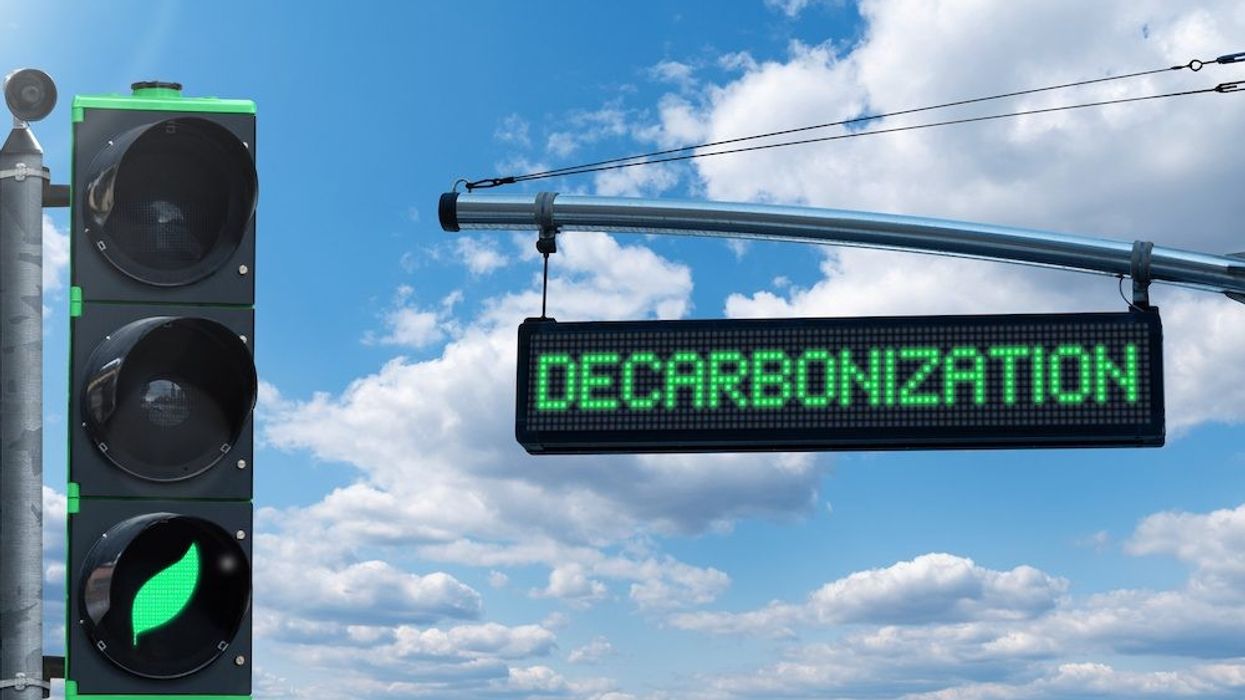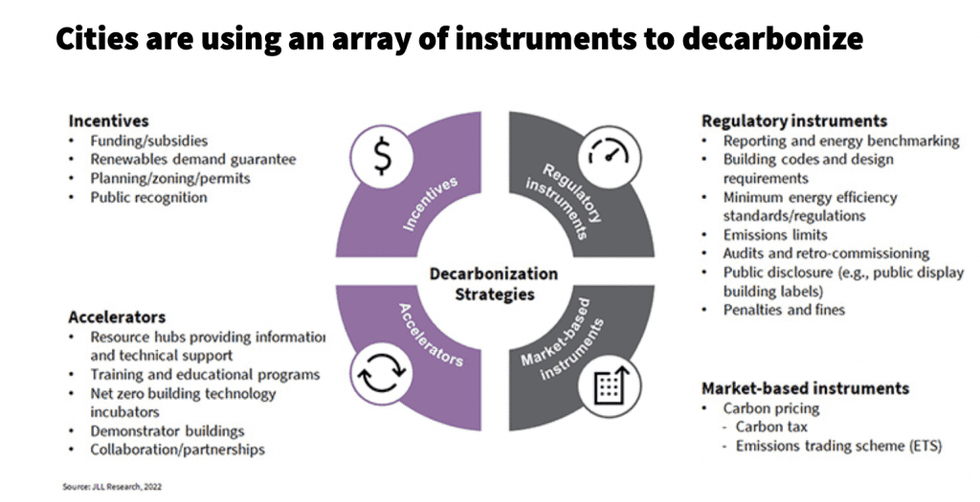We’re at the point when it’s no longer a nice idea to decarbonize cities; it’s an urgent necessity.
The latest global research from global real estate firm JLL -- who is working with corporations and governments to rapidly decarbonize cities -- reveals telling insights into the future of cities in response to the climate crisis.
In simple terms, JLL says we’re at a tipping point. And immediate action is needed.
In a study of 32 global urban centers, Decarbonizing Cities and Real Estate, JLL’s research revealed that real estate’s contribution to emissions averages 60%, even higher in the world’s largest business centers -- as much as 78% in London, 73% in Tokyo, 71% in Washington, DC, 70% in Paris, and 66% in New York.
JLL acknowledges that city governments are setting ambitious sustainability targets, yet says plans to tackle the embodied and operational carbon emissions from buildings are often not included. JLL is subsequently urging real estate landlords, investors, developers, and occupiers to step in with other sustainability initiatives to deliver a net-zero environment.
In an overarching theme, the study finds there is a significant gap between the policies enacted in municipalities, the impact of the real estate industry, and the climate science that indicates the need to reach peak emissions to limit global warming. The research identified that the most successful cities to advance decarbonization will be those that balance regulation, incentives, innovation, and accelerators.
The global commercial real estate company says that, in order to deliver a net-zero economy, city governments need to take real estate decarbonization as seriously as other sustainability initiatives and find the right balance between regulation, incentivization, coercion, and advocacy.
The report found that leading cities understand the importance of partnerships to help small and medium-sized companies improve sustainability.
According to the report, one of the biggest gaps in realizing net-zero targets is in greening energy grids -- a challenge corporates have no direct control over and one that often requires larger collaboration at the multi-city or national level. "To meet this challenge of both breadth and urgency, cities will need to collaborate with neighbouring local, state, and national governments to develop large-scale renewable energy and storage infrastructure," reads a JLL-issued press release. "City governments have a pivotal role in greening local energy grids, over which the real estate industry has little direct control. Without decarbonizing the electricity grid there are limits to what building owners can achieve in reducing their carbon emissions." It’s literally been out of the real estate industry's hands.
"Partnerships between the private-sector and local governments are critical to driving tangible progress in decarbonizing the economy, particularly in the Global North where so much retrofit is required of existing building stock,” said Guy Grainger, Global Head of Sustainability Services and ESG for JLL. “If this doesn’t happen, expect local governments to introduce heavy regulation and penalties on building standards -- there will be winners and losers as cities race to zero.”
The research warns that, in aggregate, at the global scale, policy is lagging the science today and this puts a greater onus on the private sector to take the lead in climate action. Waiting for regulation to take action is not advised, says JLL, and those who act now will have more resilient assets and even a competitive edge.
The research also identified the pivotal role that knowledge sharing and accelerator programs play in facilitating the retrofitting of existing buildings, particularly for small owners and occupants. In developed cities, 80% of the building stock that will be standing in 2050 has already been built. To meet 2050 targets, retrofitting rates will need to exceed 3% per year -- they currently stand at 1-2% -- making knowledge sharing of sustainable practices between governments and large and small entities critical to keep pace.
The report calls out several cities for their innovative approaches to reducing emissions from buildings, including New York City with a raft of local laws that are among the most stringent globally; Singapore and Vancouver, which have set out holistic approaches to greening their buildings; Paris and Amsterdam, which are taking a lead in considering embodied carbon; London and Los Angeles which are setting the pace on biodiversity; and Tokyo’s cap-and-trade program which incentivizes building owners to reduce emissions.
Closer to home, Toronto’s TransformTO Climate Action Plan has a target to retrofit 100% of existing buildings to achieve an average 40% improvement in energy performance by 2050. Through the Better Buildings Partnership (BBP), the City of Toronto provides energy reporting and benchmarking, retrofit loans, and building support expertise to improve the energy efficiency of all building types. The BBP has supported over 2,600 projects resulting in 810,000 tonnes of CO2 emissions reduction.
On a larger scale, the research highlights how cross-border collaboration will be needed, especially to help mitigate the worst impacts of climate change for the planet, and in particular for the most vulnerable cities in the Global South.






















